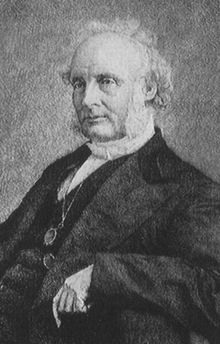Memory as mood to temptation as platter inch mortar as new jersey of milk,
the grape as winery gave weigh to Princeton for it is in the name,
ground of wonder that grace and napkin such words that toast so lined,
brow of face cheek at smudge you're chalkboard pen to bust.
Marble Halls,
these cram of treed,
maple sugar creaming lights,
heat is fry at sky in fear,
for fined deposit many years.
Touch light the bulb of brain in sought as Princeton University taught,
yet upon that New Jersey College its found to have been sound repeat like the Chanting Middle East,
what disappointment Stanford Class as Graduate degree(d) your Fast,
cards denial chilling Feast,
dinner breakfast political seats!!
Today October twenty-four that Two-thousand eighteen lean,
yes for Ted Cruz the Man whom stood to fight Donald Trump for bid,
that stagger seen on yes T.V. however did this bring,
well deep within this mess right now a ritualistic cow.
For the from to stand a Suit I know of taught by Grandfather tent,
silverware and dinner stare it was so simple I just rent,
long story sought as that was not my grandfather on explain,
stick with the guns that held the stage of what became the glued.
This easy left is not so shint for splints are a horses gear of work and wrapping is not queer,
words become the bathtub Rum as Candlelight did lung,
breath is not agreement true for that would argue sense to be the individual Speak!!
My good Eagle soaring loud that Wind is North at the Tau.
Love the letter Ted Cruz bent to understand the Vote is Man,
yes this is a note to brief to say its not republic,
for the battle of to Alamo said what to memory fenced,
mine would say last stand to state however I love sand!!
Count each grain Wheat will sway Ying and Yang Fengshui.
⃔⃕
*Rafael Edward Cruz is an American politician and attorney serving as the junior United States Senator from Texas since 2013. He was a candidate for the Republican nomination for President of the United States in the 2016 election. Cruz was raised in Houston, Texas. Read more at Wikipedia; https://en.wikipedia.org/wiki/Ted_Cruz
1:a).
In
a word, the Kami no Michi, or religion of the islanders in prehistoric
times before the rise of Mikadoism, must be carefully distinguished from
the politico-ecclesiasticism which the system called Shint [= o] reveals and demands.
~
Philosophy is to poetry,
what old age is to youth:
and the stern truths of philosophy are as fatal to the fictions of the one,
as the chilling testimonies of experience are to the hopes of the other.---Colton.
The worst things are the perversions of good things. Abused intellectual gifts make the dangerous villain; abused sensibilities make the accomplished tempter; abused affections engender the keenest of all miser.---James McCosh.
James McCosh
Jump to navigation
Jump to search
James McCosh (April 1, 1811 – November 16, 1894) was a prominent philosopher of the Scottish School of Common Sense. He was president of Princeton University 1868-1888.
| James McCosh | |
|---|---|
 | |
| 11th President of Princeton University | |
|
In office 1868–1888 | |
| Preceded by | John Maclean, Jr. |
| Succeeded by | Francis Landey Patton |
| Personal details | |
| Born |
April 1, 1811 Ayrshire, Scotland |
| Died |
November 16, 1894 (aged 83) Princeton, New Jersey |
| Children | A. J. McCosh |
Biography
A lecture room in McCosh Hall at Princeton University
In 1868 he travelled to the United States to become president of the College of New Jersey (now Princeton University). He resigned the presidency in 1888, but continued to teach philosophy until his death. McCosh Hall (home of the English department) and a cross-campus walkway are named in his honor. The campus infirmary is named after his wife, Isabella McCosh. A school on the South Side of Chicago was named after him, but has since been renamed the Emmett Louis Till Math & Science Academy.[2]
Philosophical work
McCosh's position was mainly in the tradition of Thomas Reid and other Scottish common-sense philosophers. He denied that our beliefs about the nature of the external world rest on causal or other inferences from perceptual ideas, but held that they are the direct accompaniments of sensation, and thus not open to question. He also argued for the a priori nature of fundamental principles such as those of causality and morality. Our judgements and other cognitions are regulated by such principles, though that is not to say that everyone is aware of them; they can be reached through reflection on our experience, when they are recognised as self-evidently necessary. In his moral theory, especially, McCosh differed from many of his contemporaries in being relatively uninfluenced by Kant.[3]Evolution
McCosh's most original work concerned the attempt to reconcile evolution and Christianity. In 1874, Charles Hodge, the theologian and intellectual leader at the Presbyterian Seminary in Princeton, published What is Darwinism?, claiming that Darwinism, was, in essence, atheism. To Hodge, Darwinism was contrary to the notion of design and was therefore clearly atheistic. Hodge's views determined the position of the Seminary until his death in 1878. Hodge simply refused to accept that natural laws alone could create complex organisms that fit into their niches so perfectly and that evolution could explain origins. While he didn't consider all evolutionary ideas to be in conflict with his religion, he was concerned with its teaching in colleges. Meanwhile at the college across town (a totally separate institution) President John Maclean also rejected Darwin's theory of evolution. However in 1868, McCosh became president at the college. McCosh realized that much of Darwinism could and would be proved sound, and so he strove to prepare Christians for this event. Instead of conflict between science and religion, McCosh sought reconciliation. Insisting on the principle of design in nature, McCosh interpreted the Darwinian discoveries as more evidence of the prearrangement, skill, and purpose in the universe. He thus demonstrated that Darwinism was not atheistic nor in irreconcilable hostility to the Bible. McCosh thus argued that evolution, far from being inconsistent with belief in divine design, glorifies the divine designer (see for example his Christianity and Positivism). This aspect of his work found popularity among most Presbyterians clergy, who found his arguments useful in their attempts to cope with scientific philosophy.[4] The Presbyterians in America thus could choose between two schools of thought on evolution, both based in Princeton. The Seminary held to Hodge's position until his supporters were ousted in 1929, and the college (Princeton University) became a world class center of the new science of evolutionary biology.[5]The debate between McCosh as president of the college and Charles Hodge, head of Princeton Seminary, during the late 1860s and 1870s exemplified the classic conflict between science and religion over the question of Darwin's evolution theory. McCosh offered the first public endorsement of evolution by an American religious leader. However, the two men showed greater similarities regarding matters of science and religion than popularly appreciated. Both supported the increasing role of scientific inquiry in natural history and resisted its intrusion into philosophy and religion. The debate vitalized the college.[6]
Main works
- The Method of Divine Government, Physical and Moral (Edinburgh, 1850, 5th ed., 1856, and frequently republished in New York)
- The Typical Forms and Special Ends in Creation (Edinburgh, 1855; New York, 1856)
- Intuitions of the Mind Inductively Investigated (London and New York, 1860; 3rd rev. ed., 1872)
- An Examination of Mr J. S. Mill's Philosophy (London and New York, 1866; enlarged 1871, several editions)
- Dr. McCosh's Logic: Laws of Discursive Thought, Being a Text-Book of Formal Logic (Robert Carter & Brothers, 1885)
- Philosophical Papers containing (1)"Examination of Sir W. Hamilton's Logic", (2)"Reply to Mr Mill's third edition", and (3) "Present State of Moral Philosophy in Britain".
- First and Fundamental Truths: Being a Treatise on Metaphysics (New York, Charles Scribner's Sons, 1889)
- Religious Aspects of Evolution (New York, 1888, 2nd ed., 1890). For a complete list of his writings see Joseph Heatly Dulles, McCosh Bibliography (Princeton, 1895).
References
- Bradley J.Gundlach, "McCosh and Hodge on Evolution: A Combined Legacy," Journal of Presbyterian History 1997 75(2): 85-102,
Sources
| Wikisource has original text related to this article: |
 This article incorporates text from a publication now in the public domain: Chisholm, Hugh, ed. (1911). "McCosh, James". Encyclopædia Britannica. 17 (11th ed.). Cambridge University Press. p. 206.
This article incorporates text from a publication now in the public domain: Chisholm, Hugh, ed. (1911). "McCosh, James". Encyclopædia Britannica. 17 (11th ed.). Cambridge University Press. p. 206.- Douglas Arner, "James McCosh", in The Encyclopedia of Philosophy", ed. Paul Edwards (Collier Macmillan, 1967)
- Hoeveler, J. David, Jr. James McCosh and the Scottish Intellectual Tradition: From Glasgow to Princeton. (1981). 374 pp.
- Paul Helm, "M'Cosh, James", in Dictionary of Scottish Church History and Theology, ed. Nigel M de S Cameron (Edinburgh, T & T Clark, 1993)
| Academic offices | ||
|---|---|---|
| Preceded by John Maclean, Jr. |
President of the College of New Jersey 1868–1888 |
Succeeded by Francis Landey Patton |














No comments:
Post a Comment